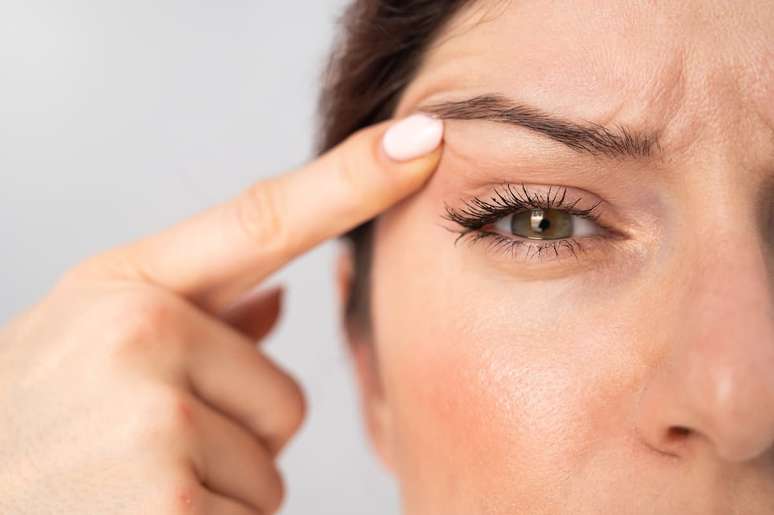Everything you need to know about symptoms, diagnosis and how to properly care for a patient with Alzheimer’s disease.
Life expectancy has increased significantly in recent years. However, aging can bring some concerns, especially the possibility of contracting some diseases that are more common in older adults. Among these diseases is Alzheimer’s, responsible for the limitation of cognitive and, often, physical functions. Since there is no cure yet, these cases become even more delicate, as the negative impacts it brings on individuals gradually increase.
What is Alzheimer’s?
Alzheimer’s is a neurodegenerative disease that leads to the loss of cognitive functions, such as memory, the ability to locate oneself in time and space, speech, etc. This disorder usually begins in a mild manner, characterized by slight forgetfulness. As the disease progresses, the consequences become more serious. People in the more advanced stages of Alzheimer’s may forget the names of close family members, their life history, and even where they live. The disease develops due to two proteins that become established in the brain. The first of these is beta-amyloid, which is deposited in the spaces between neurons. The second is tau, which is concentrated inside neurons. With the presence of these two proteins, there is a progressive loss of neurons in the hippocampus, a small formation in the brain responsible for the formation of new memories, affecting learning and emotions. Furthermore, the cerebral cortex is also damaged. This process of neuronal cell death compromises the individual’s ability to access knowledge acquired throughout life, remember experiences, communicate and reason.
html[data-range=”xlarge”] figure image img.img-baf9c7b9ef94cd509169c8c02a423a24k7tgzhfd { width: 774px; height: 519px; }HTML[data-range=”large”] figure image img.img-baf9c7b9ef94cd509169c8c02a423a24k7tgzhfd { width: 548px; height: 367px; }HTML[data-range=”small”] figure image img.img-baf9c7b9ef94cd509169c8c02a423a24k7tgzhfd, html[data-range=”medium”] figure image img.img-baf9c7b9ef94cd509169c8c02a423a24k7tgzhfd { width: 564px; height: 378px; }HTML[data-range=”small”] .article__image-embed, html[data-range=”medium”] .article__image-embed {width: 564px; margin: 0 automatic 30px; }
What are the stages of Alzheimer’s?
As we said at the beginning of the article, Alzheimer’s starts mildly, with small forgetfulness, and progresses over time. It is important to underline that the evolution of the disease depends on each individual, which is why the phases can present themselves with different rhythms or mixed. For medical purposes, the stages of Alzheimer’s are divided into three phases.
Initial phase
This period is marked by the appearance of the first symptoms, often attributed to normal aging or daily stress. Some signs that can help identify the disease are:
- Difficulty remembering names and recent events;
- Difficulty finding the right words to express yourself;
- Difficulty planning and organizing tasks;
- Disorientation in relation to time and place.
- Difficulty dealing with finances and managing commitments;
- The person is still able to carry out daily activities, but may need help with more complex tasks.
Moderate phase
The second stage of Alzheimer’s is an intermediate stage. In this case, the disease begins to manifest stronger symptoms. For this reason the individual’s routine is significantly affected. Among the signs are:
- Difficulty remembering recent and past events;
- Difficulty recognizing familiar people;
- Changes in personality and behavior, which may include irritability, agitation and anxiety;
- Difficulty carrying out routine tasks, such as dressing or bathing.
- Motor coordination problems;
- The person may begin to need assistance with basic daily activities;
Advanced stage
This is the most serious stage that an Alzheimer’s patient can reach. In this stage the symptoms worsen and the person becomes increasingly dependent on the care of others. It is not possible to carry out even the most basic activities, such as personal hygiene. The signals linked to this phase are:
- Significant memory loss, including forgetting basic information about yourself and those around you;
- Difficulty speaking and communicating coherently;
- Inability to perform basic activities, such as eating or controlling bodily functions;
- Immobility and loss of ability to walk;
- Vulnerability to infections and complications related to immobility.
How to diagnose?
The diagnosis of Alzheimer’s requires a series of tests carried out by a doctor, who will analyze the condition as a whole. When investigating whether a person suffers from the disease, the specialist will analyze several factors. Among these are family medical history, cognitive tests to evaluate the memory, thinking and reflexes of these people today. It is also necessary to perform neurological and blood tests.
What to do when you receive the diagnosis of Alzheimer’s?
Alzheimer’s is a disease for which there is still no cure. Therefore, discovery becomes even more difficult. However, with the support of a multidisciplinary team – made up of doctors, physiotherapists and speech therapists – it is possible to receive adequate care to deal with the disorder. Early diagnosis of Alzheimer’s also plays a key role in this process. The sooner the patient discovers the problem, the better the chance of containing the progression of the disease. Therefore, when you notice symptoms that may indicate the disease, seek out a neurologist for an evaluation. Symptoms such as memory loss, irritability, misinterpretations of visual and sound stimuli, isolation, or difficulty following conversations may indicate risk for Alzheimer’s. But relax too! Many of these symptoms can be related to daily stress or overload. The best solution is to always contact a specialist to get a concrete diagnosis.
Adequate care for those suffering from Alzheimer’s
If you live with someone diagnosed with Alzheimer’s disease, know that your role is essential in providing the care they need. This person needs emotional and physical support to ensure a good quality of life and safety. Some guidelines that can help in this process are:
- Promote a welcoming environment for the patient;
- Stimulate the brain and social interactions;
- Establish a routine;
- Speak clearly and calmly;
- Offer emotional support;
- Promote healthy habits, such as good nutrition and physical activity.
As important as all the care mentioned above, take care of yourself too! The routine can often be tiring, but remember that the patient needs you to be well to care for them. Each person is unique, so it is important to have the specific guidelines indicated by doctors.
Source: Terra
Ben Stock is a lifestyle journalist and author at Gossipify. He writes about topics such as health, wellness, travel, food and home decor. He provides practical advice and inspiration to improve well-being, keeps readers up to date with latest lifestyle news and trends, known for his engaging writing style, in-depth analysis and unique perspectives.








